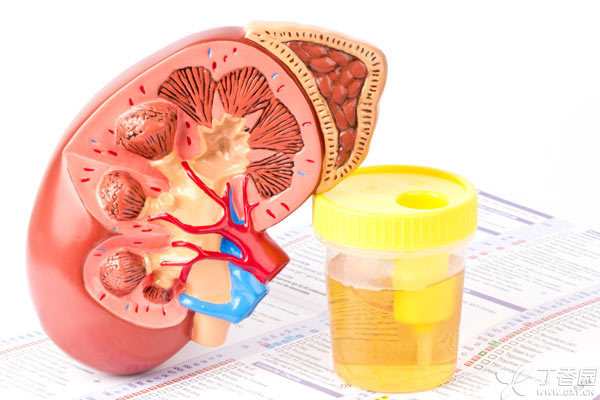
Kidney is an extremely important organ of human body. There are millions of small blood vessels with filtering function in the kidney, which are jointly responsible for removing metabolic wastes from human blood.
Diabetes can damage the function of this filtration system, resulting in renal insufficiency. The damaged kidney can no longer effectively filter out metabolic wastes in blood, eventually leading to kidney disease.
How does diabetes cause nephropathy?
When we eat and digest protein foods, we will produce a large amount of metabolic waste. In the kidney, a large number of capillaries and small holes in the wall of blood vessels are natural filters, which can effectively filter out metabolic waste and retain beneficial components in blood.
As blood flows through blood vessels, small molecules such as metabolic waste are filtered out through small pores. These metabolic waste make up the components of urine. Useful substances in blood, such as proteins and red blood cells, remain in the blood due to their large volume, which cannot penetrate through small pores in the capillary wall in the kidney.
But diabetes can destroy this stable filtration system. Elevated blood sugar will force the kidney to filter out too much blood. In this way, It can significantly increase the burden on the kidney filtration system. After several years of development, the filter is overwhelmed and starts to leak, and a small amount of useful protein will be secretly filtered out and entered the urine. Medically, urine contains a small amount of protein, which is called microalbuminuria, but the patient may not feel anything at this time.
If it is in the early stage of kidney disease, that is, microalbuminuria, the situation is not so bad, and there are still remedial methods to prevent further deterioration and damage of renal function. However, if the urine contains a large amount of protein before it is diagnosed, then the situation is not optimistic and it is easy to lead to end-stage renal failure (ESRD).
When the disease progresses to a certain period of time, the filtration function of the overloaded kidney will be seriously damaged, and it will no longer have the filtration function. A large amount of metabolic waste will begin to accumulate in the blood, eventually leading to renal failure. Patients with end-stage renal failure must undergo hemodialysis by machines, peritoneal dialysis at home, or even kidney transplantation to maintain their lives.
What are the symptoms of diabetic nephropathy?
In the early stage of the disease, although some renal capillaries are damaged and cannot filter metabolic wastes in the body well, those capillaries that have not been damaged in the kidney will work harder, thus ensuring that the kidney can still filter metabolic wastes without obvious symptoms.
However, with more and more damaged renal capillaries, the corresponding nephrotic symptoms will occur when all metabolic waste cannot be completed even if efforts are made.
The first symptom is often edema.
Other nephrotic symptoms include insomnia, loss of appetite, abdominal pain, weakness, inattention, etc.
Even if there are no obvious symptoms, you should still visit the outpatient department of the hospital regularly for follow-up. The doctor will check your blood pressure, urine (mainly depending on the protein level in urine), blood (renal function) and other indicators that reflect renal function to determine whether the kidney is damaged.
Who is prone to develop diabetic nephropathy?
Not all diabetic patients will develop diabetic nephropathy. Risk factors affecting the progression of nephropathy include genetic factors, blood sugar control, and blood pressure level.
The better the blood sugar and blood pressure levels are controlled, the lower the probability of kidney disease will be.

How to prevent the occurrence of diabetic nephropathy?
Controlling blood sugar within the target range can effectively prevent the occurrence of diabetic nephropathy.
Studies have shown that strict blood sugar control can reduce the risk of microalbuminuria by 1/3. Even for those who already have microalbuminuria, strict blood sugar control can reduce the risk of progressing to massive albuminuria by half. Some studies even believe that strict blood sugar control can reverse massive albuminuria.
Blood pressure control is also very important. The blood pressure control target is 140/90 mmHg for diabetics and 130/80 mmHg for patients with nephropathy.
Treatment of Diabetic Nephropathy
1. Self-management
Strict blood glucose control and blood pressure management are important measures for the treatment of diabetic nephropathy.
Blood pressure has an important influence on the progress of the disease. Even a slight rise in blood pressure will lead to a rapid deterioration of renal function.
Four ways to lower blood pressure include: weight loss, low-salt diet, quitting smoking and drinking, and regular exercise.
2. Medication
If the above methods still do not work, you have to take antihypertensive drugs. There are many antihypertensive drugs on the market, but not all of them are equally suitable for diabetics. Some drugs will raise blood sugar, while others will cover up hypoglycemia symptoms.
Doctors usually prescribe angiotensin converting enzyme (ACE) inhibitors to diabetic patients to lower blood pressure. Usually, the name of the drugs is [XXX Puli].
This kind of medicine is especially suitable for patients with diabetes, hypertension and nephropathy, which can slow down the progress of nephropathy and lower blood pressure.
Step 3: Diet
Another treatment for doctors to deal with large amounts of albuminuria is a low-protein diet. A high-protein diet will make it more difficult for the kidneys to work properly. A low-protein diet can effectively reduce the loss of protein in urine, thus increasing the protein level in blood.
However, please do not start a low protein diet without the guidance of a doctor, because each patient has his or her own special circumstances.
To find out how to do this, consult your doctor.
Renal failure stage
Once it progresses to renal failure, dialysis therapy must be used. Patients must choose dialysis or kidney transplantation to maintain their lives.
Responsible Editor: Fei Fei
Copyright of Clove Garden. No reprinting is allowed without permission.
